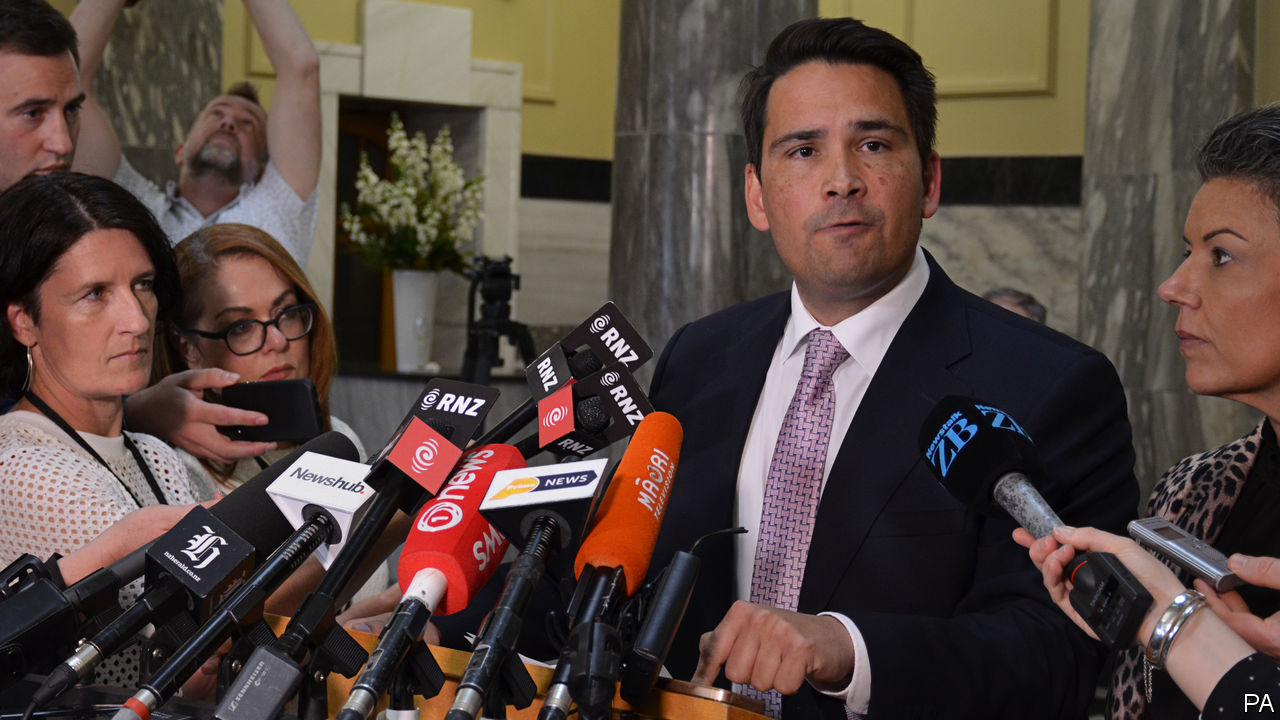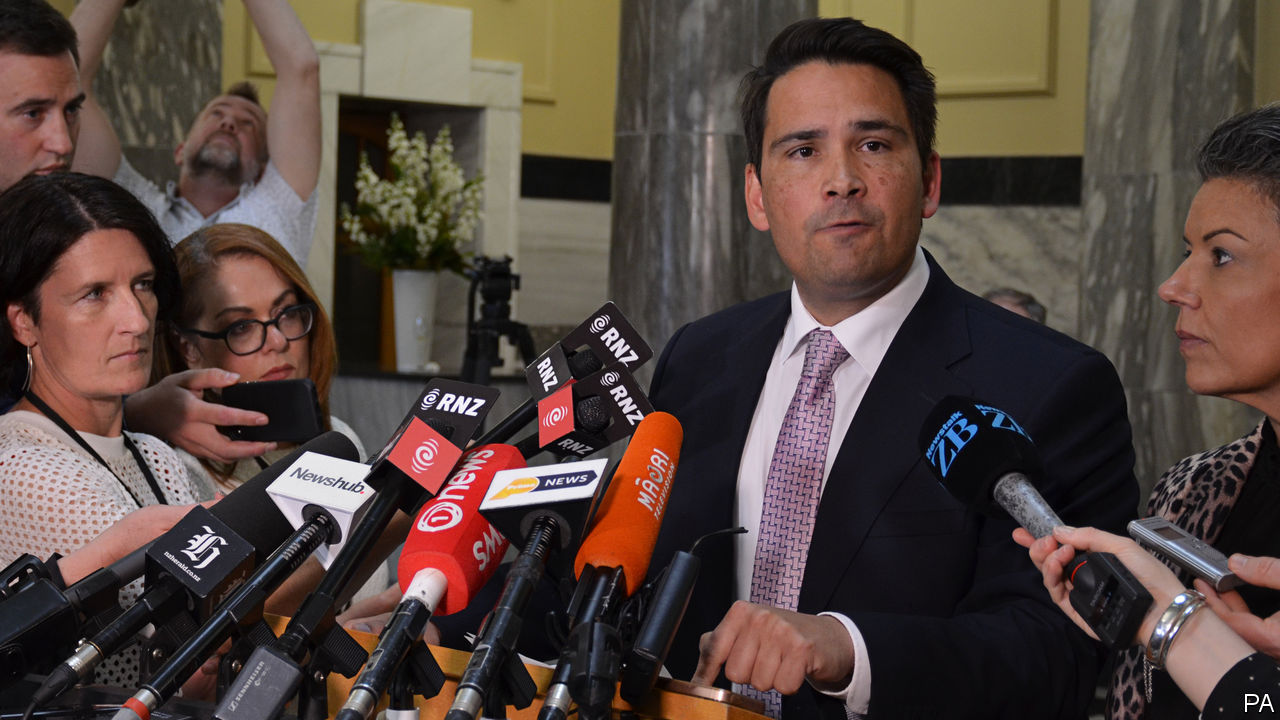
New Zealand agonises about Chinese meddling

“WE ARE FREE from political interference,” protests New Zealand’s prime minister, Jacinda Ardern. A scandal in the National Party, the main opposition, suggests otherwise. Last month an embittered National MP, Jami-Lee Ross, accused the party’s leader, Simon Bridges, of breaking campaign-finance laws. He claims Mr Bridges deliberately disguised a donation of NZ$100,000 ($67,000) orchestrated by a businessman with links to the Chinese government. In a phone conversation that Mr Ross taped of him and Mr Bridges discussing the donation, neither makes any explicit reference to concealment. Mr Bridges calls Mr Ross’s allegations “baseless”. But whether the law was broken or not, the saga has stoked concerns about Chinese meddling.
Zhang Yikun, the man behind the donation, is a resident of New Zealand, but has held positions in several official Chinese organisations, according to Chen Weijian, a dissident journalist from China who also lives in New Zealand. Mr Ross’s recording suggests the money was divided into smaller parcels, which meant it did not have to be declared. (Donations of less than NZ$15,000 can be kept anonymous, provided the benefactor lives in the country.) But on the call Mr Ross also presented the donation as an amalgam of smaller gifts from associates of Mr Zhang. Police are investigating whether the donation was properly disclosed. Mr Ross, meanwhile, has been expelled from his party. Whatever the outcome, the row suggests munificence can win influence. In the call, Mr Ross and Mr Bridges discuss whether the party should respond by adding a business associate of Mr Zhang’s to the list of MPs appointed by the party under New Zealand’s system of proportional representation.
This is not the first controversy surrounding Chinese interference. Last year it emerged that another conservative politician, Jian Yang, had worked for 15 years in Chinese military academies and been a member of the Communist Party before emigrating to New Zealand. He did not disclose this on his residency application, but denies being a spy and remains a member of parliament. China-born MPs belonging to the governing Labour Party and the right-wing ACT have also been linked to organisations peddling China’s agenda.
It is impossible to work out how many donations come with Chinese strings attached, because so many are made anonymously. Simon Chapple of Victoria University of Wellington calculates that the National Party received handouts worth NZ$4.5m in 2017. Three-quarters came from unnamed sources. At a fundraising auction in 2016 for Labour’s Phil Goff, now the mayor of Auckland, New Zealand’s biggest city, an anonymous bidder in China paid NZ$150,000 for a book written and signed by Xi Jinping, China’s president.
Several former politicians have taken jobs with Chinese firms. The Chinese government keeps tabs on Chinese students at local universities and has co-opted most Chinese-language media. Last year Anne-Marie Brady of the University of Canterbury alleged that a Chinese-owned dairy had been used to launch a scientific device that could help China develop long-range missiles. A report published recently by Canada’s intelligence agency complains that New Zealand is a “soft underbelly” through which China might gain access to intelligence shared by America, Australia, Britain and Canada.
In Australia, similar scandals have prompted the passage of new laws aimed at crimping foreign influence. The Greens, part of New Zealand’s ruling coalition, want to lower the threshold for anonymous donations to NZ$1,000 and outlaw gifts from foreigners. A petition calling for an inquiry on foreign influence has been lodged in parliament. Publicly, Ms Ardern maintains that New Zealand’s laws are fine as they are. But her government does seem to be considering how to respond—without jeopardising trade with China.
